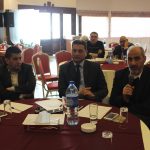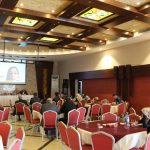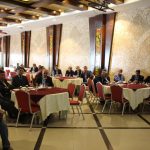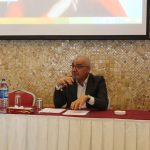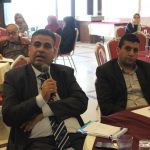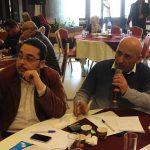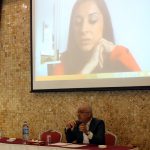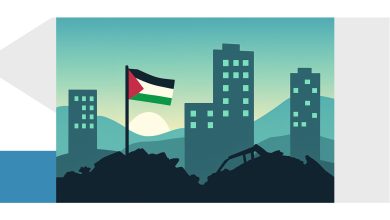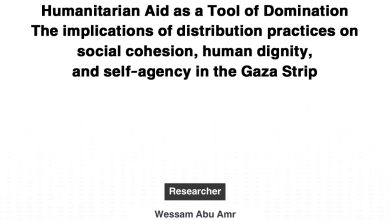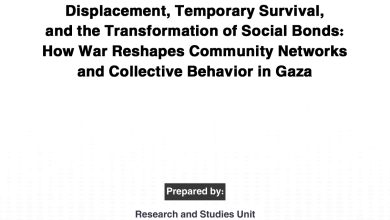Engaging International Civil Society: Human rights, Activism and Solidarity Campaigns
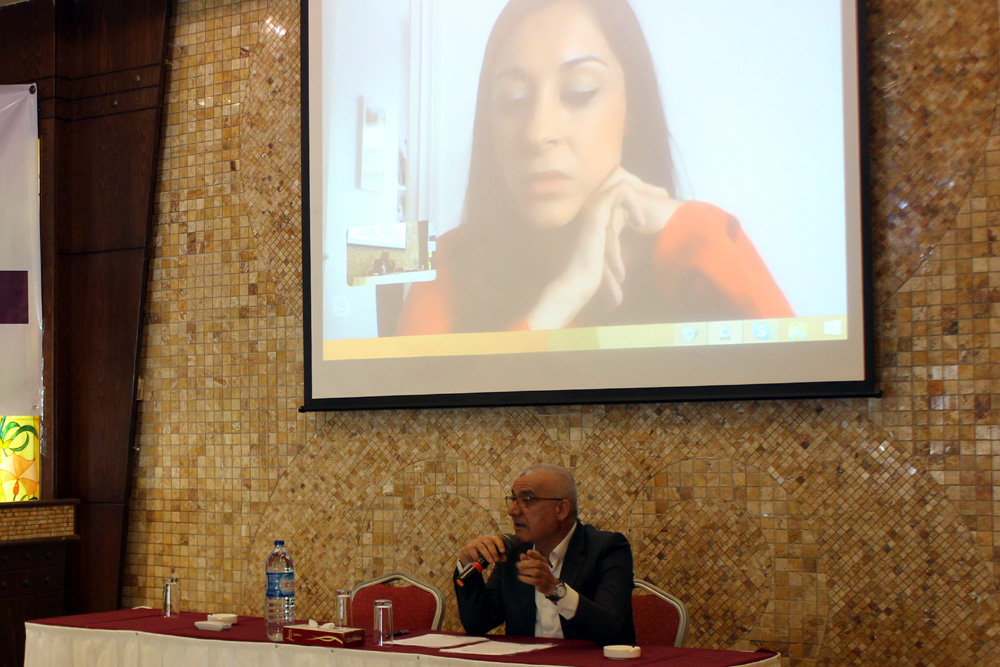
Date: Sunday, April 7, 2019, 12:00 p.m.
Location: Light-House Hotel, Gaza City, Palestine.
Background:
“Building Strategic Capacity: Empowering Civil, Political and Emerging Constituencies in Palestine and Israel” is an EU Peacebuilding Initiative-funded project that develops the ongoing work of the Palestine Strategy Group (PSG), the Palestinian Citizens of Israel Group (PCIG) and the Israeli Strategic Forum (ISF). This roundtable discussion was part of the PSG dimension of the project. Since being founded in 2008, the PSG has produced a considerable number of studies and strategic reports on the Palestinian issue. In cooperation with Pal-Think for Strategic Studies, the Palestinian Center for Israeli Studies (MADAR) and Oxford Research Group, the PSG will produce 12 research papers between 2017 and 2020 which deal with multiple themes and perspectives that then culminates in the publication of the Strategic Policy Manual “Palestine 2020”. This policy report will be presented at a major conference in Ramallah in 2020 and incorporate all the findings of the 12 PSG research papers as well as conclusions of the PCIG.
Workshop’s Attendees:
The roundtable was conducted in the Gaza strip. Attendees included Mr. Omar Shaban, director of Pal-Think for Strategic Studies as a moderator, Dr. Cecilia Baeza, Ph.D. Lecturer in International Relations at Sciences Po Paris and a Research Associate at PUC-SP, São Paulo, Brazil. And also, a diverse combination of 40 participants including journalists, professors, activists, intellectuals, writers, political analysts, and college students. Besides, 15 of the attendees were less than 30 years old, and 25 of them were above 30 years old. Only 10 female participants attended whilst 30 were male.
Moderator Contribution:
Mr. Shaban noted that this roundtable is part of Pal-Think’s continued project with ORG and the PSG within the EU Peacebuilding initiative “Building Strategic Capacity: Empowering Civil, Political and Emerging Constituencies in Palestine and Israel.” Last year, the project tackled issues related to Palestine internally and on the Israeli agenda and then covered Palestine in the region, and now presenting policy papers related to Palestine on the international agenda. Ultimately, all the policy papers written will be presented at the conference in 2020. The policy paper of this session is Engaging International Civil Society: human rights, Activism and Solidarity Campaigns, written by Dr. Cecilia Baeza.
Dr. Cecilia Baeza Contribution:
Dr. Baeza pointed out her rich experience as she lived in the global south and observed the Palestinian issue there, not only as an academic but also as an activist. Through her study, Dr. Baeza aimed at analyzing to what extent international civil society can support Palestinians in their struggle for freedom, justice, and equality.
The election of various right-wing nationalists in Europe, India, Brazil, and the USA, resulted in foreign policies against Muslims. But it is not precisely the case for the Palestinian issue except for Trump’s administration and its foreign policies against the Palestinians. Besides, other countries that support the Palestinian cause are weak and suffer from a significant crisis like Venezuela and Argentina. That’s being told, we emphasize on the importance of boosting the strategic transnational solidarity movement worldwide since Palestinians have lost diplomatic influence and state support over the last couple of years.
Transnational Palestinian solidarity is often focused on (BDS— the global boycott, divestment, and sanctions) campaign against Israel. The BDS campaign has its weaknesses and challenges, first and foremost the massive legislative and legal assault that targets the BDS movement worldwide by Israel and pro-Israeli lobbies who are campaigning for banning any boycott of Israel by accusing BDS of antisemitism. The second challenge to overcome is the difficulty the BDS faces to translate campaign successes into political achievements. For example, the case of a military embargo against Israel due to bloody war crimes in Gaza. However, the problem with turning such sanctions into actions is that they require a state-level engagement and policies, and this is an arena the BDS movement is currently not well equipped to compete in at all. The reason is complicated to ensure the synergy and consistency between BDS and the Palestinian Authority tools in relevance to the legal and diplomatic efforts. To overcome so, it is imperative for the BDS to develop ” national-level knowledge ” or ” country-specific knowledge” to agree upon and buy into the BDS concepts, vision and policies. Therefore, presenting BDS for the Palestinians as a model that must be used, even on the legal and diplomatic levels.
There is a false connection between antisemitism and anti-Israel movements, especially that Israel has ties with actors from the right-wing in Europe who are antisemitic. The image that the right-wing nationalists show against the Palestinians, this makes it a must to develop the international solidarity movement. Finally, there is a need to enhance the BDS relationship with the different human rights organizations and individuals in the world.
To sum up, it is vital for the BDS to be vocal about the ties and the support of the right wing to Israel and network and collaborate with communities that suffer from actions of the right-wing such as minorities, immigrants, and people of color. In addition, it is crucial for the BDS to build synergies with human rights organizations around the world, especially now that people lost faith in those human rights institutions that many reports have been produced with no actions taking place; thus, the Palestinian solidarity movement must develop a coherent strategy for working with the human rights community.
Attendees’ Comments & Questions:
- Most BDS supporters are those who are radical leftists, the problem with the BDS is that it could not target other parties than the left; thus, the BDS must improve its stance and relations with other political parties. Also, there is not a good relationship for the BDS and PLO & PNA. There is no consensus and harmony about the political solution for the Palestinian people; for example, the BDS believe only in the one-state solution, while the PNA believes in the two-state solution. However, when it comes to human rights societies, they are the product of western democracies themselves whilst the BDS is filled with radical left ideologies.
- The BDS movement has made several achievements when it comes to ”imposing sanctions” against Israel, it is necessary for the Palestinian Authority to intervene and reach out for officials in other countries that support the BDS to agree upon mechanisms to impose sanctions on Israel.
- The policy paper must include mechanisms to counter strategy that the previous Israeli minister of Interior has built to fight the BDS movement to protect the BDS and fight back against the Israeli actions legally.
- Does the Palestinian divide affect the effectiveness of the BDS? How do you see the Arab normalization with Israel vis-à-vis the BDS movement?
- How can the right-wing movements be helpful to the BDS activeness?
- What are the suggested mechanisms or approaches for the BDS to fight back against the falsified antisemitic accusations?
- Although the BDS movement has achieved worldwide successes, it is seen as an illegal movement in the United States and other countries, so What should the BDS do to overcome this problem?

